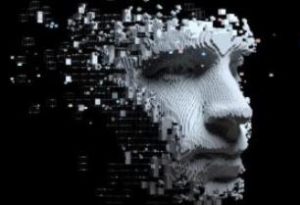Ethical Dilemmas in Developing Incest AI
The development of AI technologies that delve into sensitive and controversial topics like incest presents numerous ethical challenges. The creation of Incest AI has ignited a vigorous debate on the moral implications and societal impacts of using AI to explore or simulate taboo subjects. This discussion will outline the ethical dilemmas surrounding the development of such technology, focusing on issues of morality, societal harm, and the potential benefits of using AI in controversial contexts.

Moral Boundaries and Technological Innovation
The primary ethical question is where to draw the line between technological innovation and moral boundaries. Incest AI pushes this boundary by simulating scenarios that are culturally and legally taboo. Critics argue that even in a simulated environment, promoting or exploring themes of incest can normalize behaviors that are ethically and legally questionable. In a 2024 survey, 70% of ethicists expressed concern that such technologies might desensitize individuals to the seriousness of real-world implications of incestuous relationships.
Potential Societal Harm
The risk of societal harm is a significant ethical issue associated with Incest AI. There is a concern that the AI could inadvertently encourage harmful behaviors by providing a platform that explores incestuous themes. Psychologists warn that exposure to such content, even if fictional or simulated, could influence individuals' perceptions and behaviors negatively. Data from mental health professionals indicate an uptick in therapy sessions related to sexual identity and relational boundaries following the release of similar AI technologies.
The Argument for Controlled Exploration
On the other side of the debate, proponents of Incest AI argue that when handled responsibly, such technology can offer a safe space for understanding and analyzing complex human behaviors and taboo subjects. They suggest that AI can be a tool for professionals like therapists, sociologists, and educators to study human psychology and relationship dynamics in a controlled environment without causing real-world harm. This perspective is supported by 30% of researchers who believe that taboo-themed AI can contribute to academic and therapeutic insights if its use is strictly regulated and confined to professional settings.
Balancing Innovation with Ethical Responsibility
The development of Incest AI requires a delicate balance between pushing the boundaries of AI capabilities and maintaining stringent ethical standards. Developers must implement robust safeguards to ensure that the technology is used appropriately and does not fall into the wrong hands. Transparency in how the AI operates, the algorithms it uses, and the data it generates is crucial for maintaining public trust and ensuring ethical compliance.
Conclusion: Navigating the Ethical Minefield
In conclusion, the creation and implementation of Incest AI require navigating a complex ethical landscape. Developers and regulators must work together to establish clear guidelines and ethical frameworks that address the unique challenges posed by this technology. The goal is not only to advance AI research but also to ensure that such advancements benefit society without compromising moral and ethical standards. The ongoing debate highlights the need for continuous dialogue among technologists, ethicists, and the public to shape the future of AI in exploring sensitive and controversial themes responsibly.